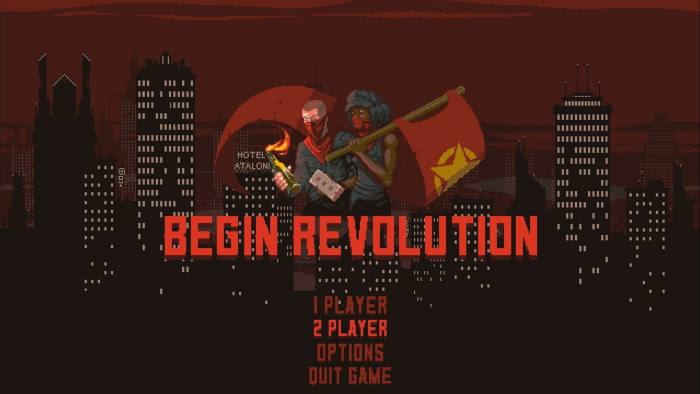Is communism “overpowered”? This is the question currently concerning players of strategy game Victoria 3. While guiding their chosen nations through the 19th century, making decisions on political, social and economic governance, gamers observed that adopting socialist policies made for more productive, happier countries than any alternative. They realised that forming worker co-operatives and redistributing wealth to the working classes was simply too effective, almost like a cheat code to the perfect nation. “Damn this game made me value subsidies and welfare in real life,” wrote one player on Reddit. The outcry was such that the developer, Paradox, rebalanced the game’s systems in an update.
The merits and — far more regularly — pitfalls of capitalism are a common topic in video games. Yet all too often, this important topic is not given the intelligent scrutiny it deserves. In the rare cases where there is a smart critique, it still exists within the gaming ecosystem, an industry which exhibits many of the worst excesses of unchecked capitalism. Can games critique economic systems? Or is their message undermined by their medium?
Usually, the commentary isn’t smart. Developers lean into tired tropes such as nefarious corporations and cast cartoon capitalists as stock villains. In Cyberpunk 2077 you’re a rebel hacker roving around a megacity controlled by corporations and in Grand Theft Auto V you’re pitted against the villainous billionaire Devin Weston. This satire is partly neutered by its crudeness — depicting the potential damage of unchecked capitalism as fat cats chomping cigars and entire worlds owned by a single tycoon misses the subtler ways these systems can cause real harm.

Moreover, the developers of both games, CD Projekt Red and Rockstar, have in the past been accused of engaging in the unethical practice of “crunch”, with teams such as Cyberpunk’s working 100-hour weeks to get the game finished (and on release it was very much unfinished, anyway). Add to this the industry’s fondness for money-grabbing business models of microtransactions and loot boxes, which make many gamers feel as if they’re little more than wallets and eyes to be juiced for cash and attention. Similarly dubious practices resulted in Fortnite creator Epic Games agreeing this week to pay a $520mn settlement to the US Federal Trade Commission. Knowing this, when games take aim at immoral corporations, their critiques ring hollow. They have adopted anti-capitalism merely as an aesthetic.
The conditions behind game production inevitably shape the stories that games tell. It is revealing that capitalist ideology is built into the most fundamental mechanics of gameplay: in almost every game you acquire resources to make yourself more powerful than everyone else and dominate the world.
It’s a shame because games can also be a uniquely effective medium to explore ideologies since players participate in their systems by making choices. Strategy games such as Victoria, Civilization and Tropico allow players to experiment with different approaches to rule, each with its own strengths and weaknesses.
One title that grapples meaningfully with the subject is science-fiction role-playing game The Outer Worlds. Here you play a space colonist who has been awakened from a long period of cryogenic sleep to find a galaxy run by mega-corporations so powerful that they even own the bodies of their employees. From the sharp minds at the company which created Fallout: New Vegas, the game lets you decide whether to fight against the establishment or to become a shill and reap the rewards.

Most of the thoughtful critique comes from the indie gaming space. Disco Elysium is one of the most sophisticated games to tackle politics, set in a world of working-class uprisings, corrupt unions and militarised governments where players are encouraged to grapple with different ideologies. Citizen Sleeper casts players as androids trying to escape the clutches of a tech company which owns their mind and body, while Kentucky Route Zero and Night in the Woods both offer intimate and elegiac depictions of rural American poverty.
Other games take a more direct approach. In Democratic Socialism Simulator you play the first socialist president of America and must make decisions to enact radical leftwing policies while navigating scandals, lobbyists and impending environmental collapse. Meanwhile, Tonight We Riot casts players as a revolutionary crowd killing cops and trying to topple the government. By making players a collective rather than a single character, it offers a rare admission in gaming that it usually takes more than one person to change the world. The developers match the ideals of their games by structuring their team as a worker-owned collective.
Games are contradictory things — they’re products of intense labour designed for idle pleasure, telling stories that might envision a better world but often reinforce society’s worst impulses. There is a place for meaningful political critique in gaming, even in the products of big corporations. But these have to be sophisticated enough to acknowledge their compromised position in a flawed system, rather than simply trying to ignore it.





